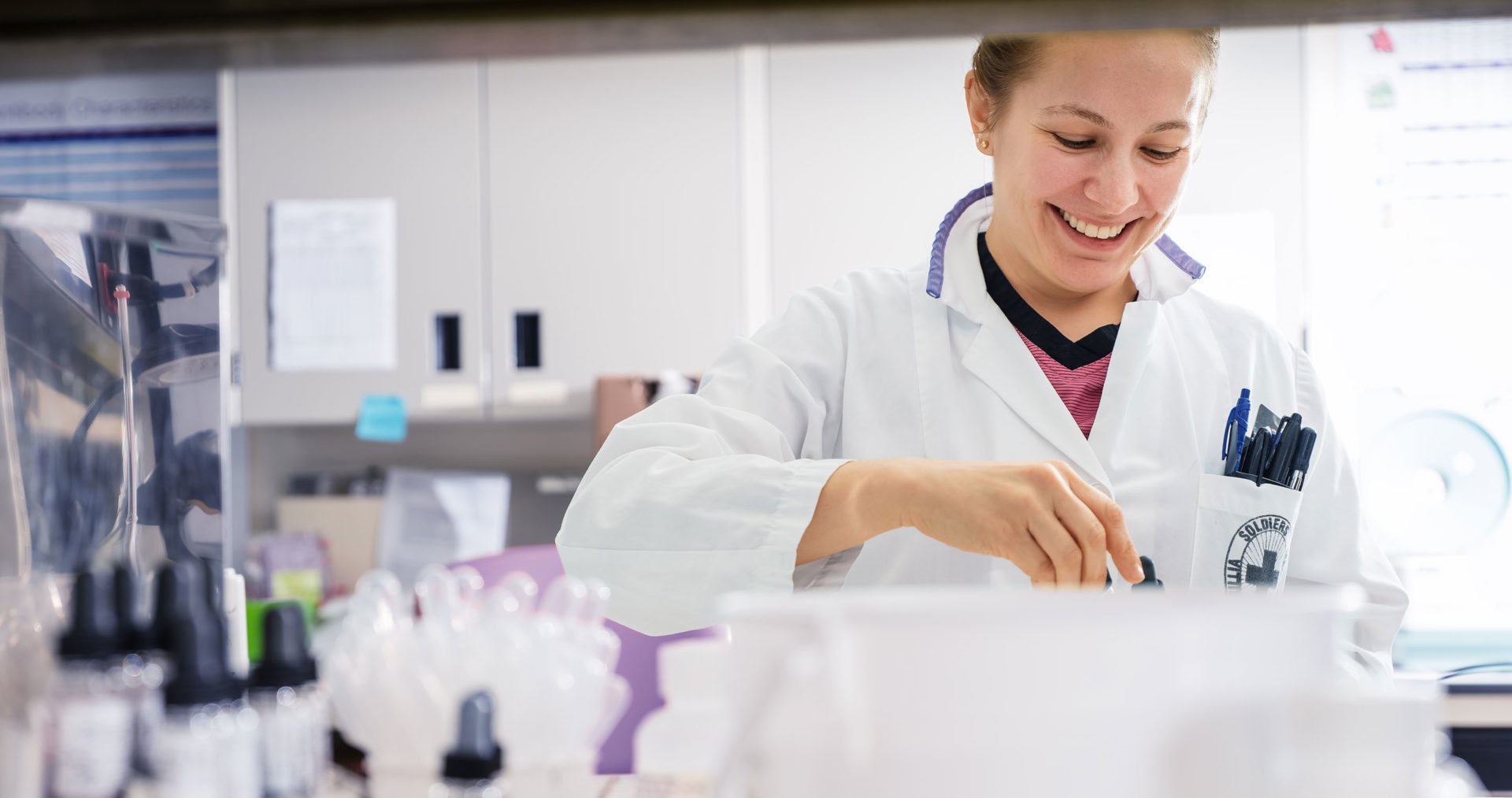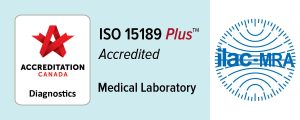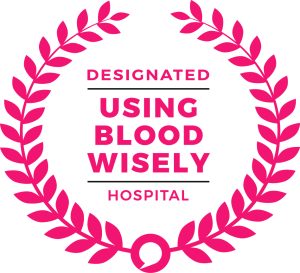
Laboratory
Patients are our focus.
Our team is driven to provide accessible and individualized care for all of our patients by providing high quality and timely results for the best possible outcome.
Our team is driven to provide accessible and individualized care for all of our patients by providing high quality and timely results for the best possible outcome.
Overview
Our laboratory department provides diagnostic testing on specialized instruments to support healthcare providers to diagnose, monitor and treat patient conditions.
All of our testing is carried out by highly trained, licensed professionals who are dedicated to providing the highest quality of results to all of our patients.
Our Quality
Our laboratory department is committed to excellent professional practice, quality of examinations and compliance with the quality management system in order to meet regulatory requirements and ensure continuous improvement of laboratory processes.
The OSMH Laboratory Services actively participates in ongoing accreditation activities and is currently certified as an “ISO 15189 Plus Accredited Medical Laboratory” through Accreditation Canada Diagnostics, enhancing the focus on the quality of testing for the best outcome for all of our clients’ needs. We are also proudly designated as a “Using Blood Wisely” Hospital through Choosing Wisely Canada and Canadian Blood Services.


Contact Us
OSMH Laboratory
170 Colborne Street West
Orillia, ON L3V 2Z3
For report/results requests, please visit Health Records or call at 705-325-2201 ext. 3513 or register for MyChart.
Our Services
The laboratory provides the following services:
- Chemistry
- Hematology
- Coagulation
- Blood Transfusion
- Limited Microbiology
- Anatomic Pathology
- Cytopathology
- Point of Care Testing
- Phlebotomy
- Specimen accessioning
- Clerical/office support
Lab Specimen Collection Clinic
Hours of Operation: Monday – Friday 0900-1200, 1300-1600 (excluding holidays)
What to Expect During Your Visit:
You do not need an appointment to visit the Lab Specimen Collection Clinic. Upon arrival to the hospital, register with Centralized Registration prior to coming down to the laboratory. For further information, please click HERE.
Directions to the Lab Outpatient Clinic from Centralized Registration:
From the main lobby, head to the end of the hallway and turn left. This will bring you to a bank of elevators on your right-hand side. In the elevator, press “B” for basement. Once you are in the basement, turn right to the next hallway, and turn right again. The laboratory collection area is located about halfway down the hall on the right-hand side.
Once you arrive in the lab, notify staff that you have arrived. If the door is locked or no clerical staff is present, ring the doorbell and someone will be with you as soon as they are able.
Patients will be seen on a first come, first serve basis. We endeavor to have a phlebotomist available for outpatient collection, however hospital inpatient collection is given priority.
Laboratory staff will explain all blood work procedures to you. All our phlebotomy staff are trained and certified.
Your laboratory results are strictly confidential and will be sent to your physician, nurse practitioner or clinic as soon as they are ready. Please ask your physician/nurse practitioner or contact Health records if you have any questions regarding the laboratory results.
Paediatric Blood Collections:
Is your child worried about an upcoming blood draw? Here are some tools and tips for your visit:
- Discuss the upcoming visit prior to coming – talk with your child about what will happen without focusing on the unpleasant or painful aspects of the procedure. The following video is an excellent overview to help your child understand the phlebotomy process that you can watch at home before the lab visit: Going to the Phlebotomist
- Tools and Toys:
Portable game device to play videos or music
Favorite toy or stuffed animal
Visually stimulating or tactile toy (i.e. colourful toys, vibrating toys (ask the lab for the buzzy bee!)
We utilize methods to show children that a laboratory blood draw isn’t as scary as it seems including but not limited to:
- Distraction Methods
- Comfort Positioning
- Sucrose Administration (for neonates)
- Access to a Child Life Specialist – A child life specialist is a healthcare provider who help children and families cope with their medical experience and any uncertainties that may arise throughout their healthcare journey in a developmentally appropriate way. Child life specialists use various types of play, education, and coping tools, to reduce fear, trauma, anxiety, and pain. Child life specialists help kids still be kids while navigating their healthcare experiences.
If you feel that your child would benefit from access to a Child Life Specialist during their visit, contact the laboratory at 705-325-2201 ext. 3524 to discuss further.
Chemistry
Chemistry provides qualitative and quantitative analysis of biological fluids such as blood, serum or plasma, and urine for specific chemical constituents or physiologic processes. Therapeutic drug monitoring is also performed as well as screening for the use of illicit drugs.
Haematology
Hematology is the study of blood cells and is interested in the production, lifespan and destruction of the cells in the blood sample.
The Complete Blood Count is a common blood test that examines the number and type of blood cells to assess overall health and screen for any underlying conditions. It is also used to monitor infection, anemia, leukemia and blood loss.
Blood Coagulation is a sub-specialty covered in Hematology and these tests assess how quickly blood clots, helping physicians diagnose and monitor bleeding or clotting disorders, as well as to manage anticoagulant medications such as Coumadin.
Other tests performed in Hematology department include but are not limited to testing for sickle cell disease, mononucleosis, and malaria.
Blood Transfusion
Our team provides sensitive testing methods to ensure the safest blood matches for patient transfusions. Pre-operative testing ensures compatible blood is on hand for your surgery. The department works closely with Canadian Blood Services to maintain an adequate inventory for our community.
Our team also collaborates with health care providers and patient support programs to provide access to home transfusion services.
Microbiology
At OSMH, most microbiology specimens are referred to Shared Hospital Laboratory (SHL) in Toronto, ON for testing. SHL is the largest hospital-based microbiology lab in and operates 24/7. SHL offers full lab automation with artificial intelligence, catering to routine hospital bacteriology to better serve clients.
The OSMH Laboratory performs limited microbiology testing including the partial incubation of blood cultures and PCR testing for respiratory viruses and C.difficile.
Anatomic Pathology
Anatomic pathology focuses on the study of disease by examining the organs, tissues and cells. Specimens from all parts of the body are sent to the Anatomic Pathology laboratory for processing and patient results are issued by medical specialists called pathologists.
Cytopathology
Cytopathology plays an important role in diagnosing cancer at a cellular level. Specimens from body fluids, washings, brushings, and fine needle aspiration biopsies are prepared and analyzed to detect cancer before, during and after surgery or radiation/chemotherapy begins, often before any symptoms appear. Patient reports are issued by medical specialists called pathologists.
Useful Resources
- Lab Tests Online
- College of Medical Laboratory Technology of Ontario
- Canadian Society of Medical Laboratory Science
- Medical Laboratory Professionals Association of Ontario
- Institute for Quality Management in Healthcare
- Accreditation Canada Diagnostics
- Canadian Blood Services
- Public Health Agency of Canada
- Shared Hospital Laboratory
- Ontario Regional Blood Coordinating Network (ORBCON)
- Using Labs Wisely
- National Advisory Committee on Blood and Blood Products